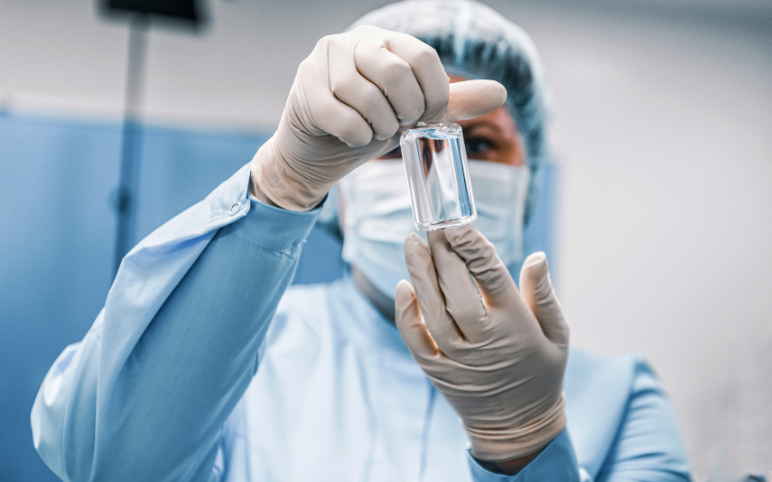Asher Bio raises USD 55 Million in Series A financing
Asher Biotherapeutics, a biotechnology company developing exactly targeted immunotherapies for cancer and other diseases, raised USD 55 Million in Series A financing.
Third Rock Ventures led the round with participation from Boxer Capital of Tavistock Group, Invus, Y Combinator and MBC Biolabs.
Asher Bio is pioneering a new way to immunotherapy, called cis-targeting, which seeks to selectively activate only the immune cell-types that drive a desired immune response, thereby addressing the inherent limitations of immunotherapies attributable to their heterogeneous effects on multiple cell types.
The most advanced development candidate in Asher Bio’s pipeline is AB248, an engineered IL-2 designed to be specific to CD8+ effector T cells. Native IL-2 is a clinically approved immunotherapy whose use has been limited due to pronounced side effects.
Beyond AB248, the pipeline comprises a cis-targeted IL-2 designed to stimulate CAR-T cells specifically, a T-cell cis-targeted STAT3 activating cytokine for cancer Treg cis-targeted cytokine for the treatment of autoimmune disease.
Roche stops Huntington’s phase 3 of Ionis-partnered antisense drug
Roche has stopped phase 3 Huntington’s disease clinical trial after a provisional review of the data. The preplanned review observed no new safety signals associated with Ionis Pharmaceuticals-partnered antisense drug tominersen, implying a lack of efficacy may have driven the decision to halt the trial.
Tominersen, also known as IONIS-HTTRx and RG6042, is designed to decrease the production of HTT, the protein that in its mutated form drives the rare genetic, progressive condition Huntington’s. HTT is a validated target, but difficulties drugging the protein via traditional modalities means there remains a significant unmet need in Huntington’s, leading companies comprising Ionis to try to come at the problem from a new angle.
Ionis’ work led to a licensing agreement with Roche in 2017 and forecasts of USD 5 billion peak annual sales for antisense therapy tominersen. The analysts at Jefferies informed investors that the unmet medical need, with no therapies approved to decrease this rare disease’s progression, tominersen was widely acknowledged to be a potentially high risk but blockbuster reward asset in Roche’s pipeline.
Novartis’ radioligand accomplishes goal in phase 3 prostate cancer trial
A phase 3 prostate cancer clinical trial of Novaris’ targeted radioligand therapy 177Lu-PSMA-617 has touched both its primary endpoints. The result tees Novartis up to obtain approval for a drug; it picked up its USD 2.1 billion acquisition of Endocyte.
Investigators in the phase 3 VISION study randomized 831 patients with PSMA-positive metastatic castration-resistant prostate cancer to receive either just investigator-chosen best standard of care or that regimen plus up to six infusions of 177Lu-PSMA-617. The drug is developed to bind to cells, which express PSMA, a protein found in prostatic tissue, and exhibit them to radioisotope emissions that disrupt replication and cause cell death.
Novartis stated that overall survival and radiographic progression-free survival were considerably better in patients who received 177Lu-PSMA-617. Novartis is yet to share the results but is sufficiently encouraged by the data to start preparing to seek approvals in the U.S. and EU later this year.
EpimAb Biotherapeutics raises USD 120 Million in Series C financing to advance bispecific programs and broaden the clinical pipeline
EpimAb Biotherapeutics, a clinical-stage biotech company specializing in bispecific antibody development, announced the closing of a USD 120 million Series C financing round. The round was co-led by China Merchants Bank International (CMBI) and Mirae Asset Financial Group (Mirae), and joined by Hony Capital, Cormorant Asset Management, Yanchuang Capital, Octagon Capital, renowned cultural entrepreneur and investor Adrian Cheng and ShangBay Capital, with influential participation from current investors such as Decheng Capital, SDIC Fund, Sherpa Healthcare Partners, and Hidragon Capital. Proceeds from the financing will support the ongoing clinical development of EMB-01, EMB-02 and EMB-06, and widen the company’s pipeline of novel bispecific antibodies and other biologics.
Dr Chengbin Wu, founder and CEO of EpimAb Biotherapeutics, said the completion of our Series C financing would enable them to accelerate the development of their three clinical assets, EMB-01, EMB-02 and EMB-06, and to advance the rich pipeline of preclinical programs into the clinic as they continue to build on their portfolio of novel bispecific antibodies generated based on the proprietary FIT-Ig technology. With three candidates currently progressing through clinical trials and various ongoing high-value development projects in the pipeline poised to move towards the clinic, they are confident in the development strategy and the potential for long-term value generation.



